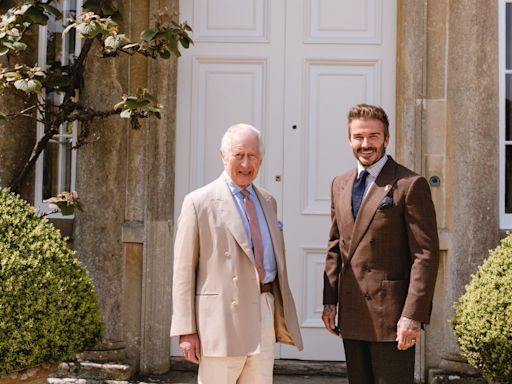Search results
2 days ago · Birmingham ( / ˈbɜːrmɪŋəm / ⓘ [6] [7] [8] BUR-ming-əm) is a city and metropolitan borough in the metropolitan county of West Midlands in England. It is the second-largest city in Britain [a] [9] – commonly referred to as the second city of the United Kingdom [10] [11] [12] [13] [14] – with a population of 1.145 million in the city proper. [4] .
- List of People From Birmingham
This is a list of famous or notable people born in, or...
- West Midlands (County)
West Midlands is a metropolitan and ceremonial county in the...
- Birmingham City Council
Birmingham City Council is the local government body...
- Food and Drink in Birmingham
In the late 18th century poor harvests in England resulted...
- Birmingham (Disambiguation)
Birmingham is the second-most populous city in England and...
- River Rea
The River Rea (pronounced "ray") is a small river which...
- Second-Largest in The United Kingdom
This Brookings list of metropolitan economies in the United...
- History of Birmingham
Prehistory Stone Age The Saltley Handaxe illustrated by John...
- Birmingham Blitz
The Birmingham Blitz was the heavy bombing by the Nazi...
- Second City of The United Kingdom
Prior to the union with Scotland in 1707, from the English...
- List of People From Birmingham
2 hours ago · The history of the United Kingdom begins in 1707 with the Treaty of Union and Acts of Union. The core of the United Kingdom as a unified state came into being with the political union of the kingdoms of England and Scotland, [1] into a new unitary state called Great Britain. [a] Of this new state, the historian Simon Schama said:
1 day ago · English is a West Germanic language in the Indo-European language family, whose speakers, called Anglophones, originated in early medieval England. [4] [5] [6] The namesake of the language is the Angles, one of the ancient Germanic peoples that migrated to the island of Great Britain.
5 days ago · Greek held a prominent place in the religious and intellectual culture of early Anglo-Saxon England, thanks in large part to the efforts of two scholars, Theodore and Hadrian, who founded an ...
2 days ago · Lake District, famous scenic region and national park in the administrative county of Cumbria, England. It occupies portions of the historic counties of Cumberland, Lancashire, and Westmorland. The national park covers an area of 866 square miles (2,243 square km).
- The Editors of Encyclopaedia Britannica
4 days ago · Founded in 1768, The Encyclopedia Britannica is a general knowledge English-language encyclopedia. It is written by about 100 full-time editors and more than 4,000 contributors, including 110 Nobel Prize winners and five American presidents.
People also ask
Is Encyclopedia Britannica biased?
Where did Old English come from?
What is London known for?
What was Britain like between 1950 and 1970?
5 days ago · Explore the timline of Charles I of England. Charles I of England (r. 1625-1649) was a Stuart king who, like his father James I of England (r. 1603-1625), viewed himself as a monarch with absolute power and a divine right to rule.






